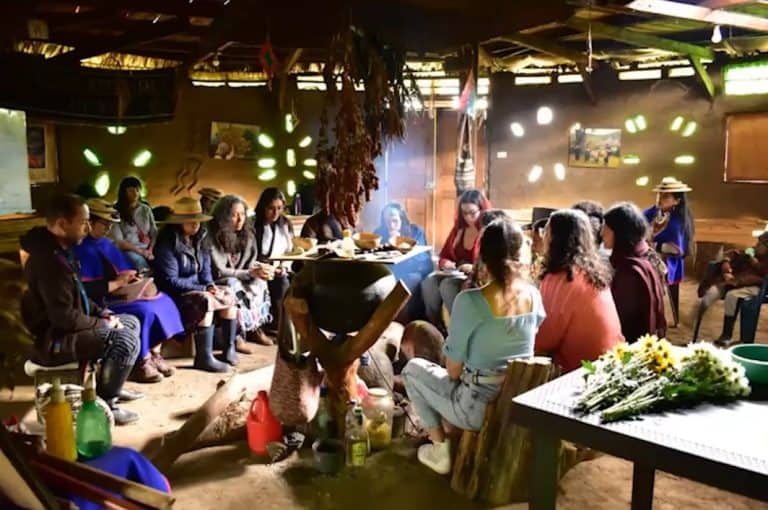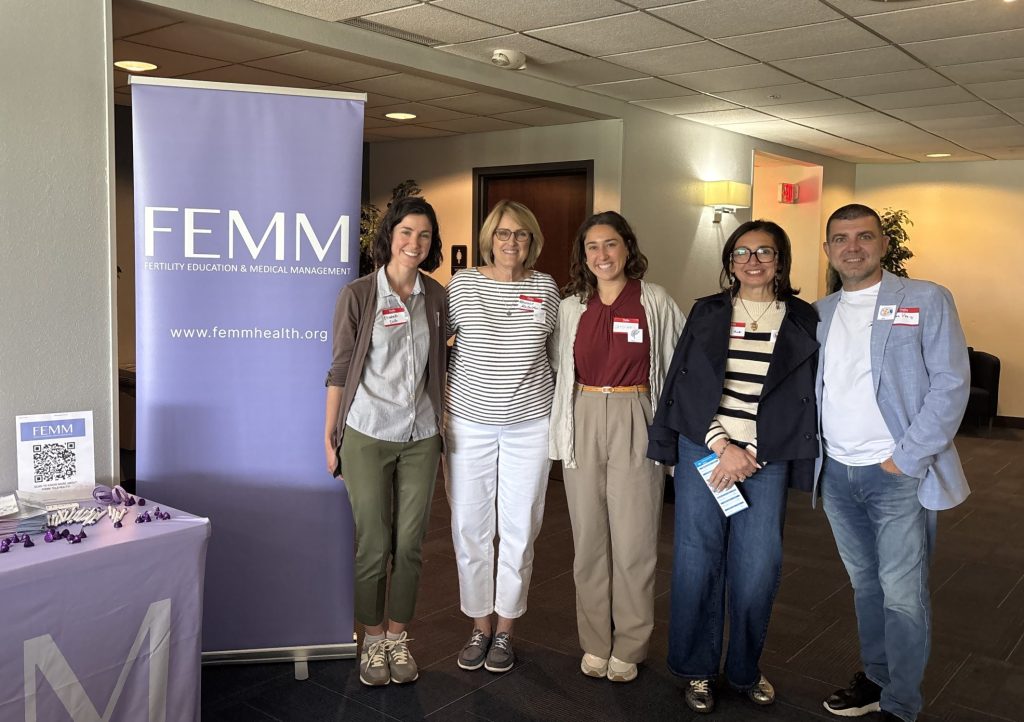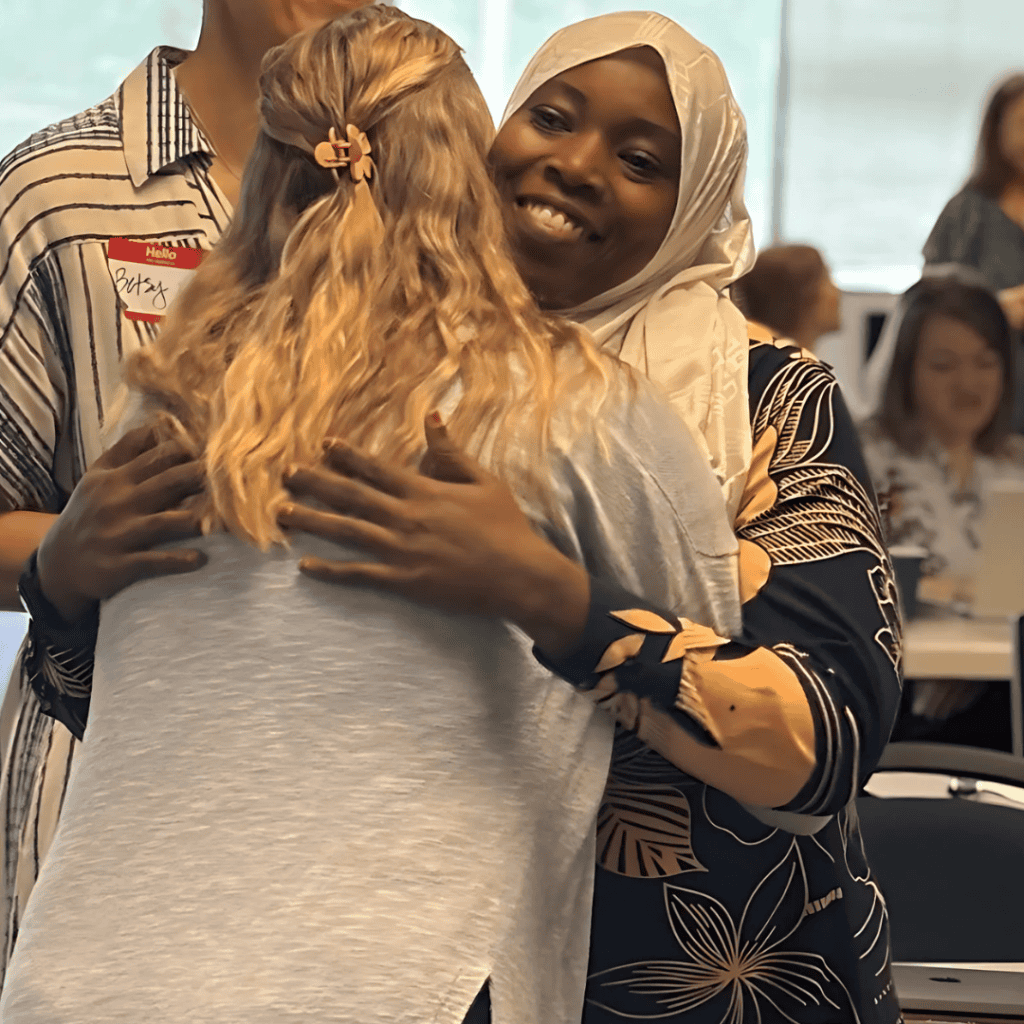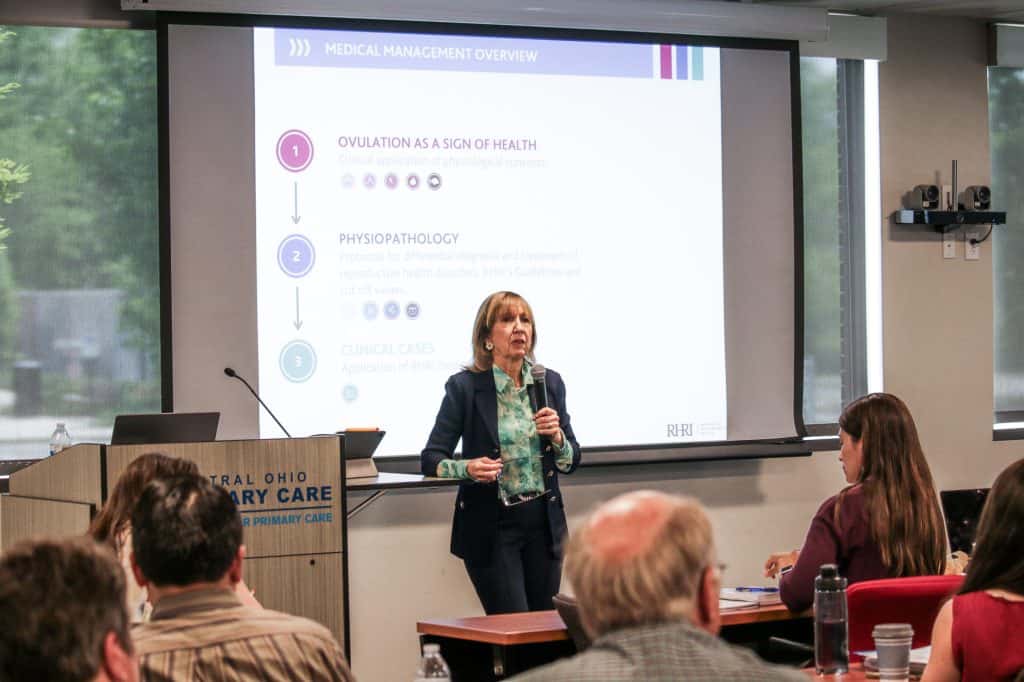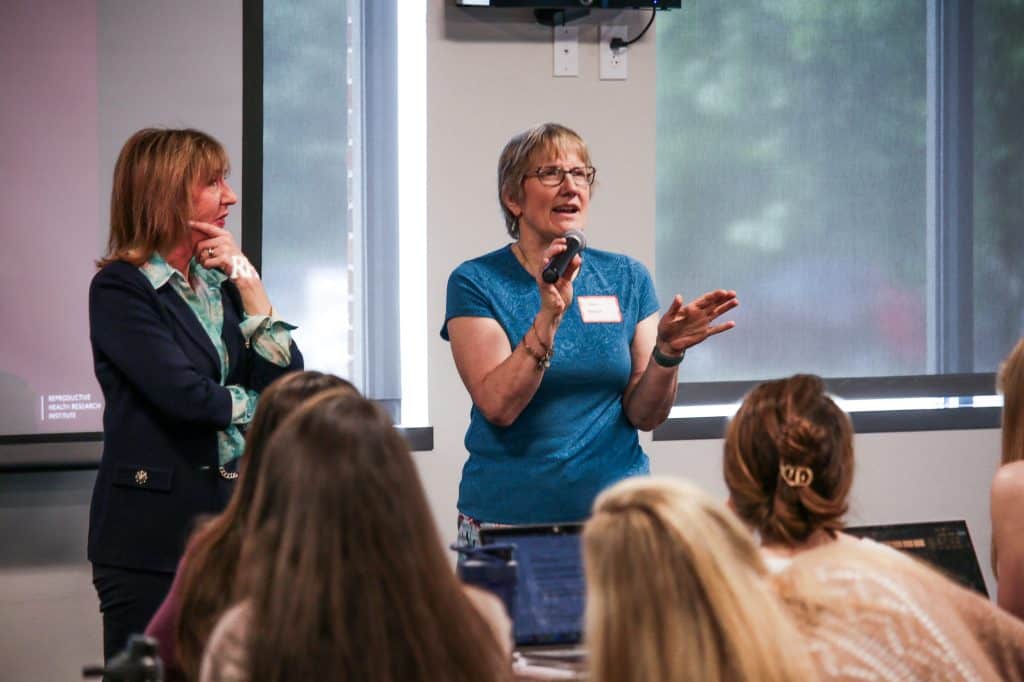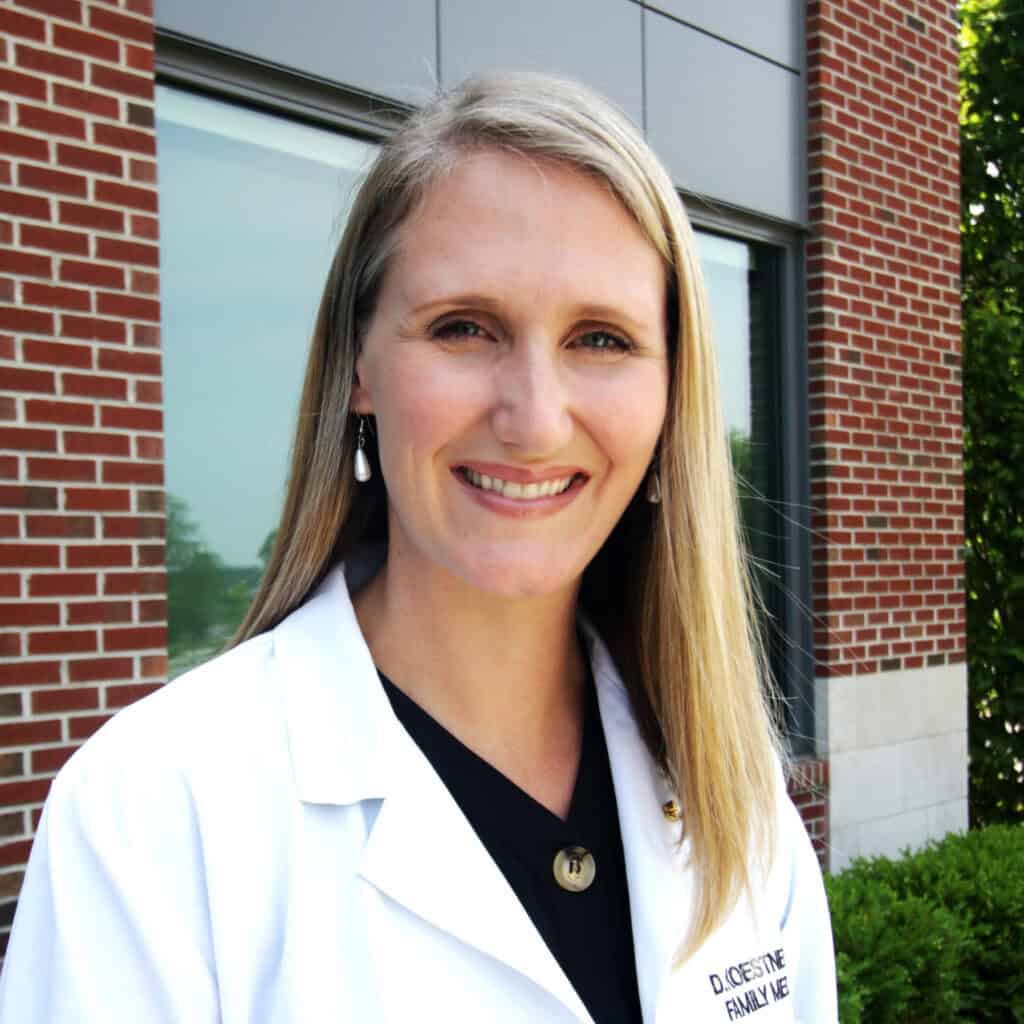Workshop Strengthens Women’s Health for the Misak
FEMM had the privilege to be invited by the Misak, indigenous people living in Silvia, Cauca, Colombia.
The Misak cosmogony is structured in a dual system: the masculine and the feminine. For them, the conception and the beginning of life are very important, as well as all the phases of the reproductive continuum.
People from the Misak community are losing their traditions. Most women now use hormonal contraception and are affected by their health impact.
As an example, last year, one woman in the community died due to the usage of hormonal birth control.
This is why some of them are now interested in natural family planning methods that are more aligned with them.
Teaching Fertility Awareness Methods to Indigenous People
Mama Agustina Yalanda is a midwife and community leader who knows our work, so she invited us to her community. Thanks to her, we have been able to exchange knowledge in a horizontal relationship.
Last year we visited Silvia’s Botanical Garden where we shared to women and men a workshop about the ovarian cycle, ovulation as a sign of health, hormonal contraception, natural family planning, observing the biomarkers, and charting their cycle using FEMM.
“The workshop that you shared with us was very important for us as women to learn more about our bodies, our first territories. Now we know that there are natural family planning methods that do not harm our bodies. Thank you very much for sharing this knowledge that was very helpful for the women of the community. Pai pai (thank you)”
Mama Yuli Yalanda, Misak leader.
Meeting the Misak Where They Are
Since the Misak people are very knowledgeable about cycles of life in nature, we adapted the teaching language of FEMM for them, using metaphors comparing ovulation with growing a seed and tropical weather seasons (dry and wet seasons).
For them, it was very easy to understand the information in these terms.
This workshop was self financed by our own resources. We have spoken with some community leaders, and they see our work as urgent, but unfortunately they don’t have economic resources to finance us.
We want to continue this process we began last year, by being able to go back to Silvia and teach the whole FEMM program.
“It was very rewarding being able to reach the Misak community that does not have the privilege to access this education, but urgently needs it”.
Manuela y Laura, FEMM Teachers
You can count on FEMM for telehealth or 1-on-1 support with our FEMM teachers to find the root cause of your symptoms and help you understand your holistic health.

